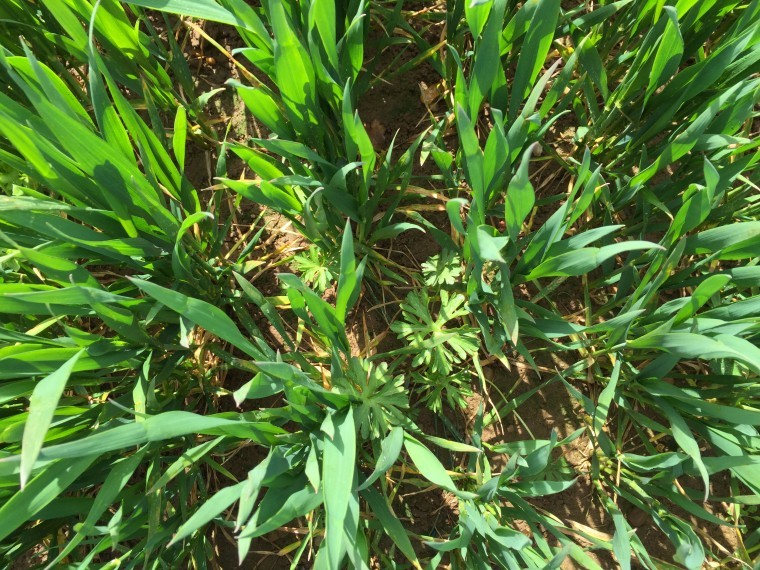March and April are key months for taking out the weeds known to hit yield at harvest time.
But across South East England farmers have struggled to find dry fields where crops are ready for applications and soils are able to handle heavy machinery.
DowDuPont says there are a number of things growers can do to help catch up as soon as the opportunity presents itself.
“Growers now have a lot to do and there is going to be a big crunch on available time,” said Dr Alex Nichols, the company’s cereals herbicide product manager.
“We’re advising them to walk fields and identify which weeds are present and how big they are.
“This should be followed up by choosing the right product to control them and ensuring they have it in the store ready to go.
“Choosing weed killers that can be tank mixed in the sprayer with other crop protection products, growth regulators and trace elements will tick off more jobs in a single pass.”
Dr Nichols says growers should prioritise fields where weeds are bigger or where the weed spectrum is likely to compete with crops and rob yield.
In the region’s fields the main broad-leaved weeds being identified are cleavers, poppies, cranesbill, fumitory, fat hen, chickweed, brassicas and mayweeds.
“Taking weeds out before they can really compete with the crop can be hugely important to yield,” Dr Nichols said. “It also means the combine is only cutting a crop, not a big pile of weeds.”
Grassweeds such as bromes and ryegrasses are also present and need stopping before they get too big to control.
DowDuPont’s Broadway Star is widely used to tackle grassweed pressure, and Dr Nichols says it needs to go on as soon as possible.
“For broad-leaved weed populations, Zypar contains Arylex Active which works in cold and variable conditions to target the key problem weeds,” he added.
“Using a reliable product in a year where time is not on growers’ side is going to be absolutely vital.”
Pictured: Cranesbill example




